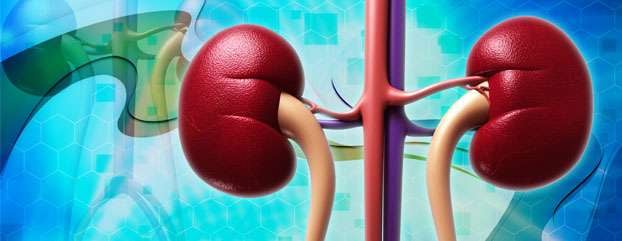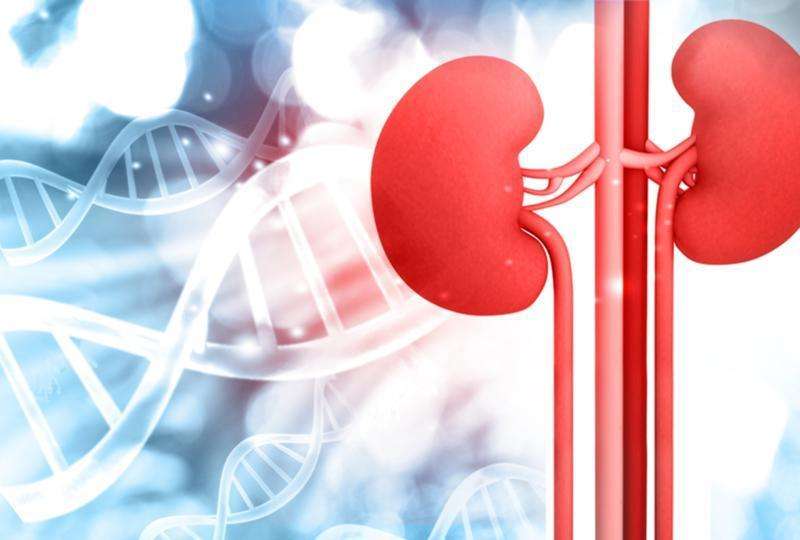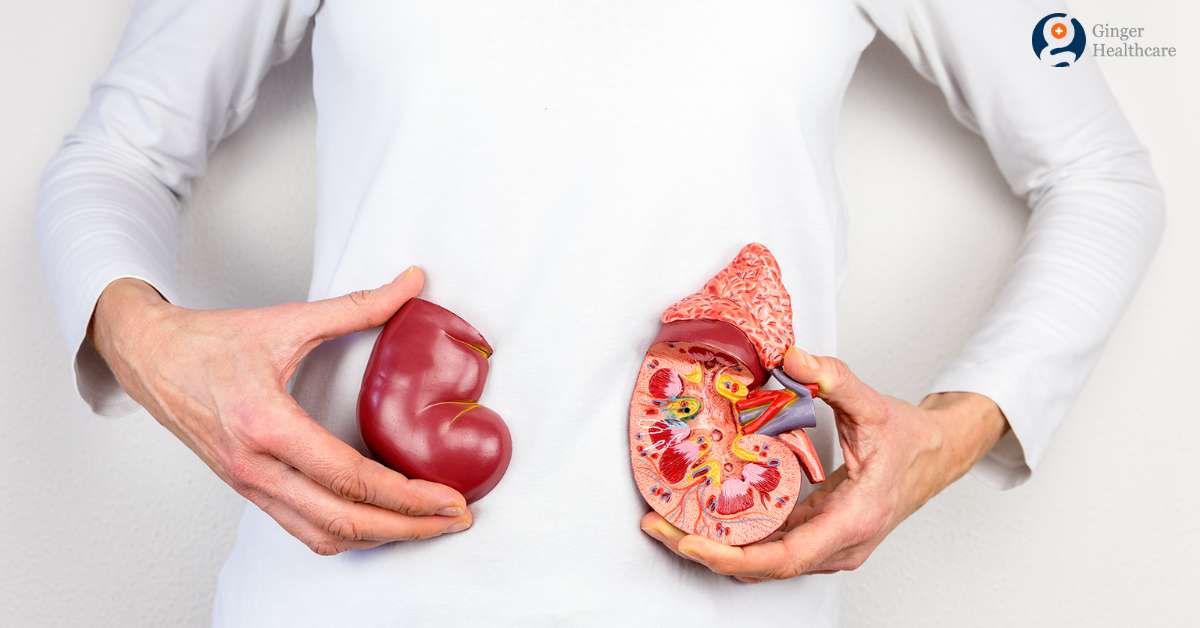For Many People Transplant Is The Best Option
The advantages include:
- People who get a transplant often have more energy than patients on dialysis. Most can go back to work, eat and drink more freely, and return to exercising.
- A transplanted kidney can do 50% to 80% of what a normal kidney does, while dialysis can do only 10% to 15% of what a normal kidney does.
How Do I Prepare For A Kidney Transplant
To get a kidney from an organ donor who has died , you must beplaced on a waiting list of the United Network for Organ Sharing .Extensive testing must be done before you can be placed on the transplantlist.
A transplant team carries out the evaluation process for a kidney. The teamincludes a transplant surgeon, a transplant nephrologist , one or moretransplant nurses, a social worker, and a psychiatrist or psychologist.Other team members may include a dietitian, a chaplain, and/or ananesthesiologist.
The evaluation includes:
-
Mental health evaluation. Psychological and social issues involved in organ transplantation, such as stress, financial issues, and support by family and/or significant others are assessed. These issues can greatly affect the outcome of a transplant. The same kind of evaluation is done for a living donor.
-
Blood tests. Blood tests are done to help find a good donor match, to check your priority on the donor list, and to help the chances that the donor organ will not be rejected.
-
Diagnostic tests. Diagnostic tests may be done to check your kidneys as well as your overall health status. These tests may include X-rays, ultrasound, kidney biopsy, and dental exams. Women may get a Pap test, gynecology evaluation, and a mammogram.
The transplant team will weigh all the facts from interviews, your medicalhistory, physical exam, and tests to determine your eligibility for kidneytransplantation.
These steps will happen before the transplant:
What Are Some Things I Can Do To Take Care Of Myself During Recovery
Its important to closely follow any instructions given by your healthcare provider. Here are some general guidelines:
- Avoid lifting heavy objects and strenuous physical work for at least six to eight weeks following surgery. Its important that you dont lift anything heavier than 20 pounds for two to three months, and nothing heavier than 40 pounds for four to six months from the date of your surgery.
- Avoid driving for at least six weeks following surgery. Plan ahead so a friend or family member can help out during this time. When youre in a moving vehicle, always use your seat belt.
- Exercise. Your provider will recommend beginning with stretching exercises and walking. Other excellent exercises include jogging, hiking, bicycling, tennis, golf, swimming and aerobics. All of these can help you regain your strength and you can start gradually after your incision has healed.
- Avoid contact sports since they might cause injury to your transplanted kidney. If you have doubts about any activity, talk to your healthcare provider.
Recommended Reading: Aleve Kidney Side Effects
Life After A Kidney Transplant
After the operation, you will likely need to take medicine for the rest of your life to prevent your body from rejecting the new kidney. Your healthcare team will probably talk to you about your treatment plan, how to monitor your health and the self-care required. You will probably still need regular check-ups and you need to continue taking your medication as prescribed.
Since the anti-rejection medication weakens your immune system, you should try to avoid getting infections by:
- staying away from people who you know are sick,
- washing your hands well before eating
- covering any cuts or wounds
Also, follow your healthcare teams advice on living a healthy lifestyle, such as getting enough physical activity and eating healthily. For instance, avoid high-salt foods and drinking excessive amounts of alcohol because salt and alcohol can raise your blood pressure, which can damage your kidney.
Most people feel they have a better quality of life after a kidney transplant.
Q When Is The Best Time To Get A Kidney Transplant

You May Like: Liver Transplant Tattoo Ideas
Pros And Cons Of Kidney Transplant
Kidney transplant is a surgical procedure or treatment choice aimed for patients suffering from kidney diseases. A donated kidney will be placed inside the abdomen of the patients and will do the works of the failed kidneys. The kidneys of the patient will not be removed during transplant operation not unless theres a condition that requires it. Facing a kidney transplant is a very serious matter it is an issue of life and death. Thus, people should be aware about the different factors when it comes to kidney transplant especially in terms of its advantages and disadvantages.
Who Might Need A Kidney Transplant
A kidney transplant may be an option if your kidneys have stopped working entirely. This condition is called end-stage renal disease or end-stage kidney disease . If you reach this point, your doctor is likely to recommend dialysis.
In addition to putting you on dialysis, your doctor will tell you if they think youre a good candidate for a kidney transplant.
Youll need to be healthy enough to have major surgery and tolerate a strict, lifelong medication regimen after surgery to be a good candidate for a transplant. You must also be willing and able to follow all instructions from your doctor and take your medications regularly.
If you have a serious underlying medical condition, a kidney transplant might be dangerous or unlikely to be successful. These serious conditions include:
- cancer, or a recent history of cancer
Your doctor may also recommend that you dont have a transplant if you:
- smoke
- drink alcohol in excess
- use illicit drugs
If your doctor thinks youre a good candidate for a transplant and youre interested in the procedure, youll need to be evaluated at a transplant center.
This evaluation usually involves several visits to assess your physical, psychological, and familial condition. The centers doctors will run tests on your blood and urine. Theyll also give you a complete physical exam to ensure youre healthy enough for surgery.
Kidney donors may be either living or deceased.
Recommended Reading: 4mm Kidney Stone Actual Size
The Top 8 Cons Of A Kidney Transplant
1. A kidney transplant requires major surgery, which can cause further health problems if not done successfully. Also, this process is usually expensive.
2. Donated kidneys are not always available. Some patients will need to wait for potential donors.
3. One of the most unfortunate things about kidney transplant is that, the body of the patient who needs a new kidney might reject the new kidney. Thus, one kidney transplant may or may not last for a lifetime.
4. In undergoing kidney transplant, the patient will need to use or take immunosuppressant, which can actually cause some complications.
5. Kidney transplantation is not recommended for those who have severe obesity, heath disease, mental disorders, and chronic illness.
6. Should take anti rejection medicines the rest of patients life or the kidneys life.
7. Higher risks for infections from anti rejection medicines.
8. Frequent labs and tests to be drawn as well as doctors visits.
Dont Miss: Carbonation And Kidney Stones
How Do I Know My New Kidney Is Working
Blood tests help you know your donor kidney is working. Before you leave the hospital, youll schedule an appointment at the transplant center to test your blood. The tests show how well your kidneys are removing wastes from your blood.
At first, youll need regular checkups and blood tests at the transplant center or from your doctor. As time goes on, youll have fewer checkups.
Your blood tests may show that your kidney is not removing wastes from your blood as well as it should. You also may have other symptoms that your body is rejecting your donor kidney. If you have these problems, your transplant surgeon or nephrologist may order a kidney biopsy.
Don’t Miss: What Tea Is Good For Kidneys
What Is A Kidney Transplant
A kidney transplant is a surgery done to replace a diseased kidney with ahealthy kidney from a donor. The kidney may come from a deceased organdonor or from a living donor. Family members or others who are a good matchmay be able to donate one of their kidneys. This type of transplant iscalled a living transplant. People who donate a kidney can live healthylives with one healthy kidney.
A person getting a transplant most often gets just 1 kidney. In raresituations, he or she may get 2 kidneys from a deceased donor. The diseasedkidneys are usually left in place. The transplanted kidney is placed in thelower belly on the front side of the body.
What Are The Possible Problems After A Kidney Transplant
The donated kidney may start working right away or may take up to a few weeks to make urine. If the new kidney doesnt start working right away, youll need dialysis treatments to filter wastes and extra salt and fluid from your body until it starts working.
Other problems following kidney transplant are similar to other pelvic surgeries and may include
- bleeding
- hernia
- pain or numbness along the inner thigh that usually goes away without treatment
Transplant rejection is rare right after surgery and can take days or weeks to occur. Rejection is less common when the new kidney is from a living donor than when its from a deceased donor.
Don’t Miss: Is Watermelon Good For Kidneys
Reduce Your Risk For Infections
As a transplant recipient, you will be at risk for getting infections. Your immunosuppressant medications make your body’s immune system less active. This helps to prevent rejection of your new kidney, but makes it harder for your body to fight off infections. Fifty percent of transplant recipients get an infection during the first year. Infections can be mild to life-threatening. Your risk for infection will lessen over time. Understanding when you are most at risk – and why – can help.
To help reduce your risk of infection:
What Are The Advantages Of Living Donation

There are three advantages to living donations versus getting a deceased donor kidney:
Recommended Reading: Is Ibuprofen Metabolized In The Kidneys Or Liver
What Are The Side Effects Of Anti
Some anti-rejection medicines may change your appearance. Your face may get fuller, you may gain weight, or you may develop acne or facial hair. Not all people have these side effects.
Anti-rejection medicines weaken your immune system, which can lead to infections. In some people over long periods of time, a weakened immune system can increase their risk of developing cancer. Some anti-rejection medicines cause cataracts, diabetes, extra stomach acid, high blood pressure, and bone disease.
When used over time, these medicines may also cause liver or kidney damage in some people. Your transplant team will order regular tests to monitor the levels of anti-rejection medicines in your blood and to measure your liver and kidney function.
Q What Happens During A Kidney Transplant
Recommended Reading: Watermelon And Kidneys
Transplanted Organs Dont Last Forever
While transplanting a healthy organ to replace a diseased or failed organ can prolong life, transplants have limits. A transplanted kidney lasts on average 10 to 13 years if the organ came from a living donor and seven to nine years if it was from a deceased donor, according to The Ohio State University Wexner Medical Center. Meanwhile, a liver will function for five years or more in 75 percent of recipients. After a heart transplant, the median survival rate of the organ is 12.5 years. A transplanted pancreas keeps working for around 11 years when combined with a kidney transplant. And a transplanted lung continues to work for about five years on average, but this increases to eight years if both lungs have been transplanted, OSU also notes.
Access For Peritoneal Dialysis
Peritoneal dialysis uses a soft tube called a catheter. A surgical operation is required to insert the catheter into the peritoneal cavity. The catheter is about 0.5 cm wide and remains in your body until dialysis is no longer needed. One end of the catheter sticks a few centimetres out of your body, so that it can be connected to a bag containing a special fluid. The catheter allows the fluid to enter and leave your peritoneal cavity. Waste and extra fluid move from your blood into the special fluid, which is then drained from the body. Each time ‘used’ fluid is replaced by fresh fluid, the cycle is called an ‘exchange’. The number of exchanges needed differs from one person to the next.
Read Also: Ginger Good For Kidneys
Continuous Ambulatory Peritoneal Dialysis
Four exchanges are usually done each day. Each exchange includes connecting a new bag of fluid, draining out the old fluid and putting the new fluid in. It takes about 30 minutes and can be done almost anywhere, with a few sensible precautions. In between exchanges, the person is free to go about their daily activities. Exchanges are typically done on waking, at lunch time, at dinner time and before going to bed. Some flexibility is available for busy days. CAPD works by gravity. When the drain bag is placed at floor level the fluid drains out. By raising the new dialysate bag above shoulder level, the new dialysate flows into the peritoneal cavity.
Q How Long Does The Kidney Transplant Surgery Take Can I Eat Or Drink Before The Surgery
Read Also: Pomegranate Juice And Kidney Stones
What Happens During The Kidney Transplant Procedure
Kidney transplantation involves placing a healthy kidney into the body, where it can perform all of the functions that a failing kidney cannot.
The new kidney is placed on the lower right or left side of your abdomen where it is surgically connected to nearby blood vessels. Placing the kidney in this position allows it to be easily connected to blood vessels and the bladder. The vein and artery of your new kidney are attached to your vein and artery. The new kidneys ureter is attached to your bladder to allow urine to pass out of your body.
You May Like: Std That Affects Kidneys
How Is My Child Placed On The Waiting List For A New Kidney

Talk with your childs healthcare team to see if a transplant is an option for your child. If it is, then have your childs provider refer you to a transplant center in your area. Transplant centers are located in certain hospitals throughout the U.S. Your child must complete a full evaluation at the transplant center.
Also Check: Celery Juice Kidneys
Q Is There A Difference Between A Living Or Deceased Donor Transplant
What Should I Eat Or Avoid Eating With A Kidney Transplant
You have more choices about what to eat after you receive a kidney transplant than you would if you were on dialysis. However, you will need to work with a dietitian to develop an eating plan that can change in response to your medicines, test results, weight, and blood pressure.
Read more about kidney failure and eating, diet, and nutrition.
Read Also: Is Ginger Good For Kidneys